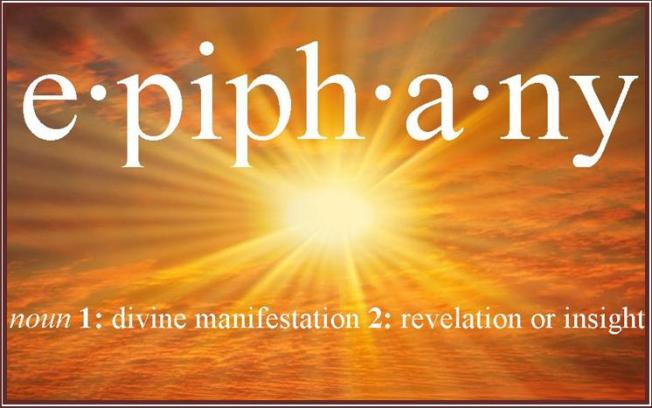In her works on Fierce Conversations and Fierce Leadership, Susan Scott recounts her young daughter’s excited reaction to an “epiphany” moment by telling her mom that she just had an “apostrophe”. Here’s one of mine.

A few weeks ago I promised myself that I would spend some time thinking about and exploring some key questions concerning the status and direction of education and learning in our country. It’s not that I pretend to have a great handle on where we are as a nation; however, in my travels to schools around the country, I noted that each school is engaged in some kind of journey that involves defining where they are and how to get somewhere.
In my morning reading regime, I came across a post by Jimmy Casas, entitled, ”Wherever You’re Going, You’re Almost There”. The author was describing a conversation that he had with a new assistant principal who asked him, “When did you know that you had finally gotten there?” The author shared that he had responded, “I’m not exactly sure. I guess that would depend on where I am headed and I haven’t quite figured that out.”
He went on to make the point “…that no matter how many years we serve in the role of school leader, we will never ever ‘get there’.”
But I had stopped processing at “I haven’t quite figured that out yet?” It was my “ah ha”, my “apostrophe”… we don’t really know where “there” is. Not for lack of folks trying to tell us. Way back in 1997 Kieran Egan summarized what he saw as the three major imperatives of our education system:
Note: This is a book length pdf file. If inclined to check it out, the first 5-8 pages should get you the idea. More required an adult beverage to two for me.
- We should socialize and acculturate our children – i.e., shape the young to the current norms and conventions of adult society;
- We should teach them the knowledge that will ensure that their thinking conforms to what is real and true about the world.
- We should encourage the development of each student’s individual potential.
- And most recently, the National Governors’ Association and the Council of Chief State School Officers (with some philanthropic assistance) told us we should make kids “college and career ready”.
A quick review of these various “goals” for education in America reveals (a) that there is inherent difficulty in simultaneously achieving goals which, as Egan points out, are inherently incompatible and (b) that our schools and their mission statements faithfully reflect the acceptance of these imperatives regardless of these incompatibilities.
So what does this mean? For me it means that, given the wide variety of potential “destinations” it’s hard to be wrong… or right – wherever you are going, you can be almost there. And that’s where we are – almost there or not. Almost college and career ready, or not. Almost socialized to the norms and conventions of the country, or not. Almost reaching our individual potentials, or not. Almost certain that our students knowledge of the world is real or true, or not.
I realize that what was most outstanding about the exceptional schools that I visited was that they – the students, the parents, the school/district leaders, and the teachers were all clear about where they were going. And because they knew that, they were also able to assess where they were on that journey – and look at initiatives and strategies in the context of that destination.
 I recall reading an observation by Steven Covey that we have gotten much better at the management of our clocks and calendars while spending far too little time on checking our compasses. I’ve seen Covey’s observation in action. The healthiest and most highly functioning places I’ve seen pay very special attention to identifying their compass heading, to assessing their progress and making course corrections.
I recall reading an observation by Steven Covey that we have gotten much better at the management of our clocks and calendars while spending far too little time on checking our compasses. I’ve seen Covey’s observation in action. The healthiest and most highly functioning places I’ve seen pay very special attention to identifying their compass heading, to assessing their progress and making course corrections.
For reflection
- How intentional is your school, district, classroom about having a clear compass heading?
- Who set/sets the course for the school?
- How do you check to see if you’re on course?
- Have any “apostrophes” you’d like to share?

Thanks for bringing forward Kieran Egan’s good work.
LikeLike
You were right – tough read and fascinating writer
LikeLike
Great post as always. A bit of an excuse on my part…freedom for creativity in charting destinations at the local level would emerge if somehow we could free the politically beurocratic vice grips which have little or no significance just so politicians can add an education related achievement to their resumes for re-election.
LikeLike
Love your comment. Here’s a link you might enjoy
https://janresseger.wordpress.com
Her blog from today is about research documenting the failure of the NCLB an Race To The Top programs.
LikeLike
Interesting to think about the “exceptional schools” you mentioned in the next to the last paragraph. I used to think I knew or could recognize “exceptional schools”, and even thought I’d been in a few. Now I’m not sure. I like Egan’s first three imperatives (I no longer buy into the added one), but I don’t know that I’ve seen good ways to measure those 3 — and frankly not sure any current assessment approaches are up to the task.
Maybe we’ll figure it out over one of those adult beverages you mentioned . . .
LikeLike
I agree re the assessment options available. Not sure it would be better if folks attempted to develop large scale solutions to this. In fact, I’m pretty sure it wouldn’t. I see Egan’s the imperatives as a part of the problem. I interpret him saying that they are not mutually compatible and have resulted in kind of “buffet” of experiences that often compete and most frequently minimize the impact of each.
Richard Strong said to me once that he felt the best way to neutralize a good idea was to turn it into a program. We’ve called groups of schools “systems” and then expected/demanded that they acc like systems, destroying their ability to be intentional and successful around the idea of individual agency.
You buying the adult beverages?
LikeLike